Execution. Technique. Originality. Vocabulary. Musicality.
Breaking, commonly known as breakdancing, made its debut in the 2024 Summer Olympics.
Freshman Caroline Le watched the first-ever Olympic Breaking event (also known as breakdancing) on Aug. 9-10 on TV with her family at home.
“This is the first Olympics where I really sat down and watched multiple sports,” Le said. “Normally, I watch sports like women’s gymnastics or volleyball, but since breaking is new to the games this year, I decided to give [breaking] a watch.”
The 2024 Paris Olympic Games brought in over 30.6 million viewers worldwide across NBCU platforms, which was an 82% increase in viewership from the 2020 Summer Olympic Games in Tokyo, Japan, which had a viewer count of 16.9 million.
This earned the 2024 Paris Olympics the title of the most-streamed Olympics of all time.
Le found the event enticing, yet wondered why this was the only dance form that was added.
“After watching the [breaking event] debut, I wondered why solo or large group dancing in different styles like contemporary-modern or ballet weren’t added,” Le said. “I am curious as to why [breaking] was chosen since it’s not a form of dance many would think of when they initially think of competitive dancing.”
Senior Jeffery Gao, a breaker and president of the eMotion breakdance team, was optimistic about breaking’s Olympic debut this year.
“It was really cool to see something that I’ve been working on for such a long time be represented on a world stage,” Gao said. “I think that everyone there performed their best and showed [the world] what breaking really is.”
eMotion director Paris Kent said that the breaking event gave people the opportunity to see how much physicality, athleticism and training the breakers put into the event and was thankful for the inspiration and positivity that eMotion members gained from seeing some of their favorite breakers compete, particularly HISD alum Jeffery Louis, a Westside High School graduate.
“I really appreciated that a Houston breaker got featured in there and did really well,” Kent said. “He’s also an HISD alumni, which is amazing [and] really goes to show the product of the sport that comes out of our district. [It was] really positive that my breakers got to see someone they know in the community be on the big screen, and [now] they want to do it too.”
As someone heavily involved in breaking, Gao also understands how audiences may not have picked up on the “more intricate and difficult elements of breaking that make it so special.”
“The average viewer tend[s] to really enjoy the big dynamic movements a lot more,” Gao said. “As someone who’s more experienced, I find enjoyment in the little details. As a culture, breaking [is about] people connecting with music, [and] being able to demonstrate that on the dance floor [is just as] impressive [as] doing crazy movements [that] the average viewer might see.”
For Gao, that personal connection to the Olympics hasn’t just been about seeing Louis on TV. It’s extended to training with him personally, where he worked with him over the summer in 2024.
“I didn’t even know he was an Olympian at that point,” Gao said. “And then when I figured it out, I was like, ‘Oh my god, I should have gotten his autograph. His performances are amazing because he is probably one of my biggest role models. He embodies the type of dancing that I primarily enjoy. The way that [Louis] dances, he really connects with the music and the audience. I can really feel his energy and groove that he brings to the dance floor.”
Now that the Olympics have wrapped up and breaking won’t be returning in 2028, many people have falsely attributed its removal to low ratings or controversy over performances.
“Breaking was scheduled to not be coming back to 2028,” Gao said. “It was replaced with lacrosse. It’s really unfortunate that it got canceled because it’s led to a lot of people having the misconception that [it’s] due to the performance of the breakers this time that breaking won’t be coming back. I think it’s really unfortunate, but it’s still really good that [breaking] was shown to the world.”
Junior Dylan Tran did not agree that the breakdancing event should return.
“I don’t consider breaking a sport,” Tran said. “I find it a form of self-expression rather than something that should be a competition. I don’t think people should deem their style of dancing to be better than others.”
And while she is happy that dance received global recognition, Kent said that the performances on display in the Olympics only scratched the surface of the world of breaking, with many of the best dancers choosing not to compete, valuing keeping the art of breaking alive over seeing it in the Olympics.
“If the world thought that they saw the best of breaking, they’re absolutely wrong,” Kent said. “There’s so many [more] that [I know] could absolutely qualify and chose not to [audition], so I don’t think that the world has seen the best breakers. I’m an artist first, and we want to [preserve] the artistry of the style, so it doesn’t have to be in [the Olympics].”
For Gao, seeing the culture and history of break being honored made the event stand out.
“One of the DJs, DJ FLEG, is one of the most well-known and respected DJs of all time,” Gao said. “He played a bunch of musical mixes that are considered old school [and] really foundational to breaking in general,” Gao said. “[He played] songs that people used to play in the 1990s, and [that] really shaped the foundation of breaking. The most memorable moment was just being able to hear that music and seeing my biggest idols dancing to it in person.”
As a dancer in eMotion, sophomore Elizabeth Gamero said that when she watched the Olympics, she was especially excited to see breaking make a debut.
“The breaking was really cool even though it did get a lot of hate, which is unfortunate,” she said. “The moves they do aren’t easy, and they take a lot of dedication to learn.”
However, when Gamero heard that breaking wouldn’t be included in the next Olympics, she was disappointed.
“I feel like a lot of people don’t understand what breaking really is,” Gamero said. “It’s supposed to be a community thing. It involves a lot of culture as well, and a lot of people disrespect that.”
Despite the fact that breaking may not return, Gamero remains committed to breaking. She respects the hard work that goes into mastering the event and is determined to continue sharing its importance.
“I would still watch the Olympics even if breaking isn’t there anymore,” Gamero said.
Kent liked the diversity of Team USA’s members and how strong and successful it made them.
“Anybody and everybody can be an Olympian, no matter what color [or] creed [you are], who [you are or] where you come from,” she said. “I love that America is a melting pot. That’s what makes us so great in the Olympics: we have athletes in every sport, and they’re all of different races and ethnicities.”



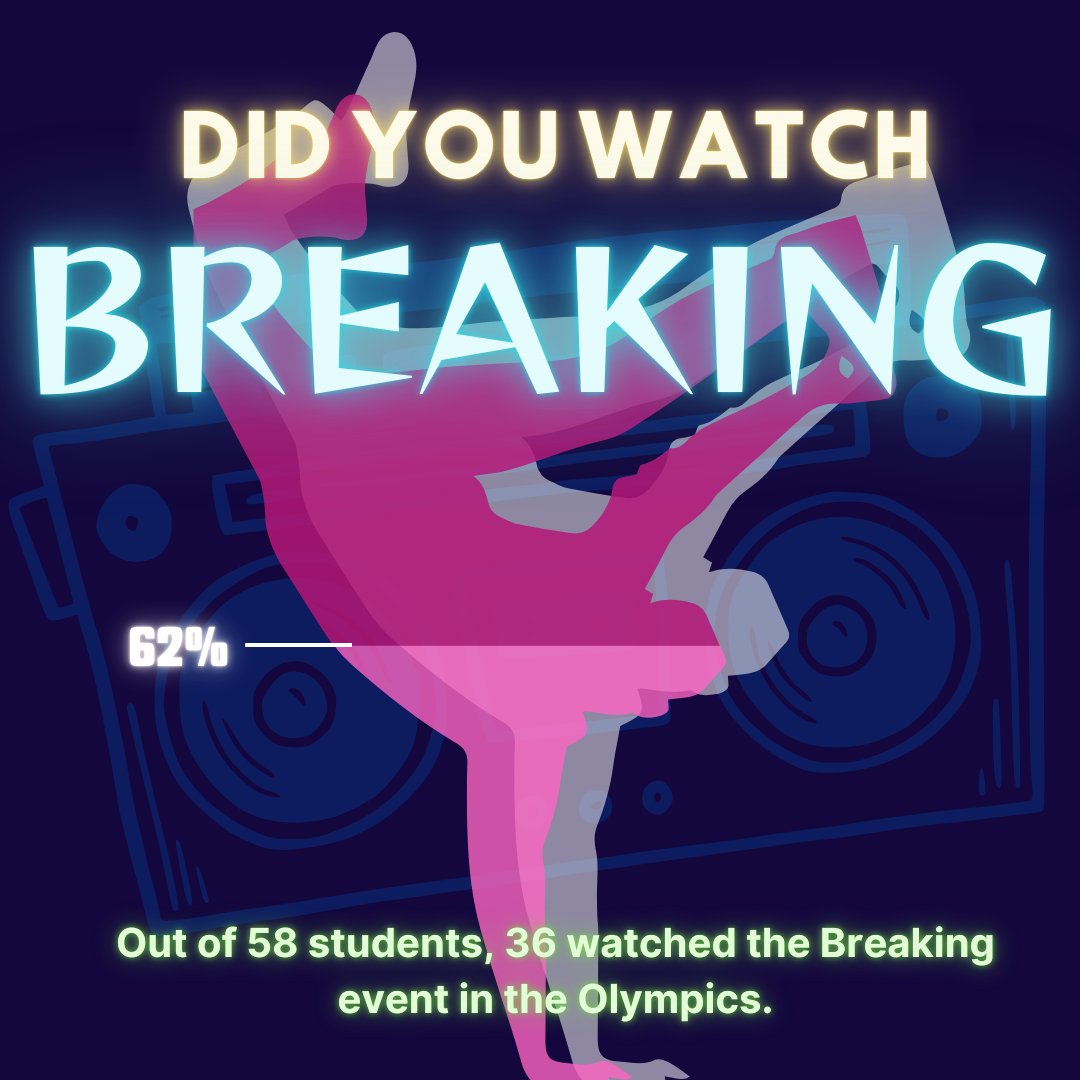


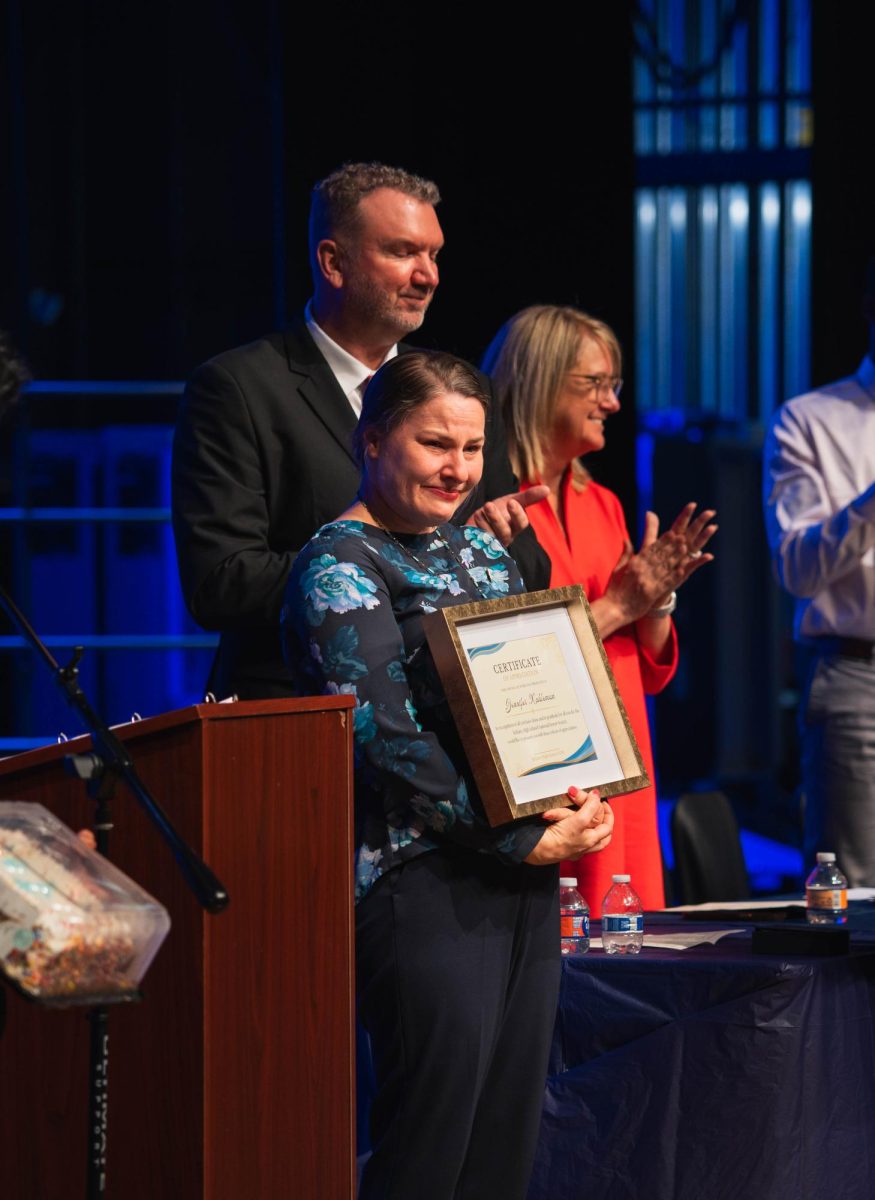
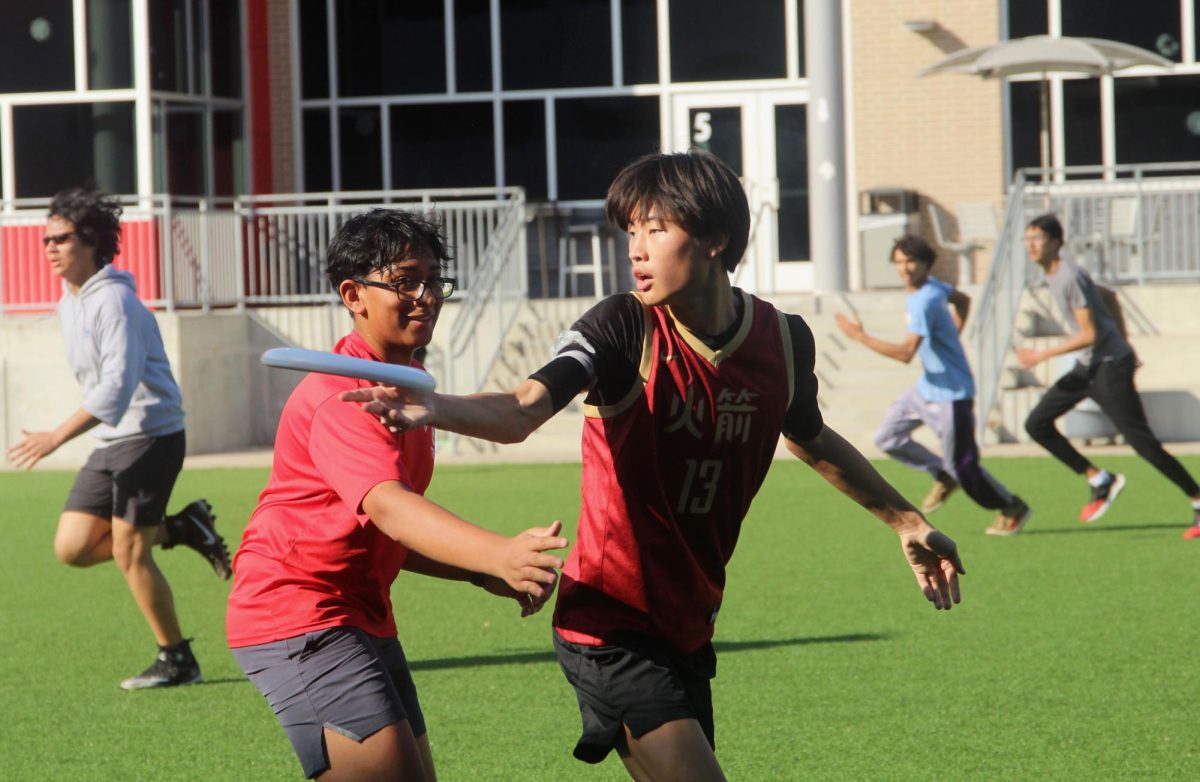
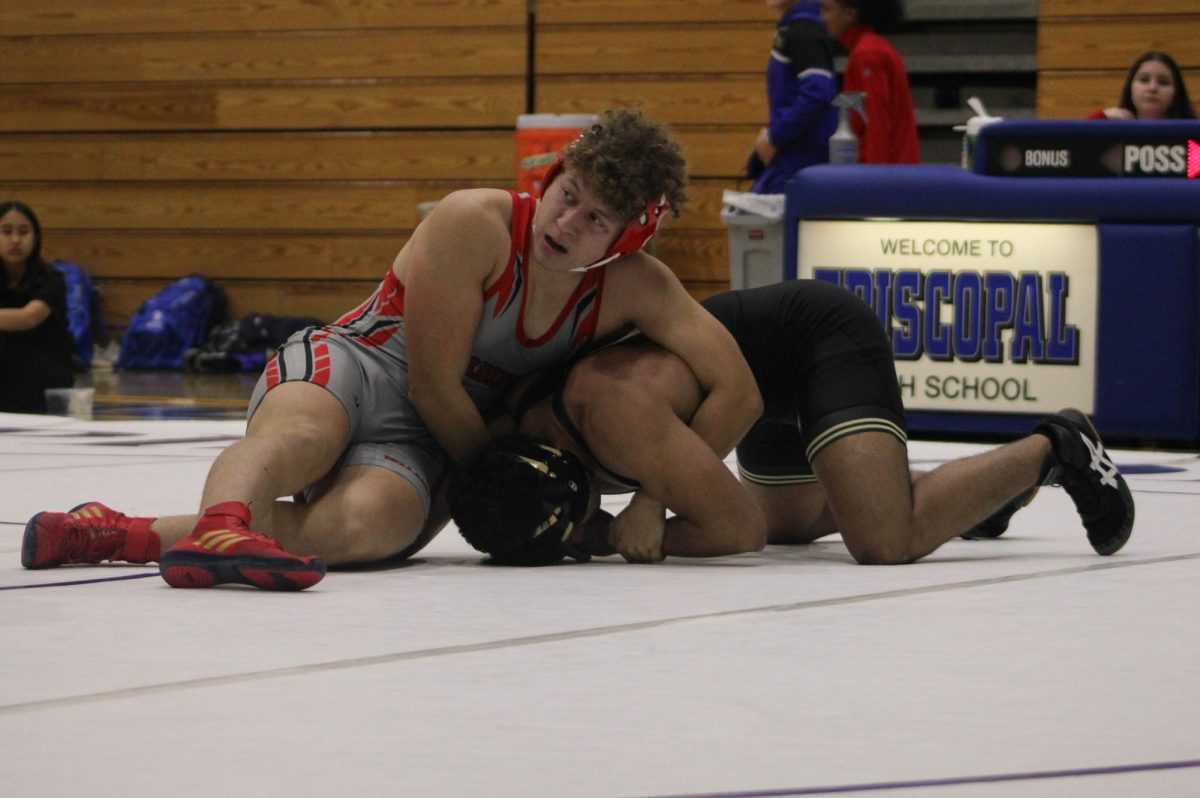
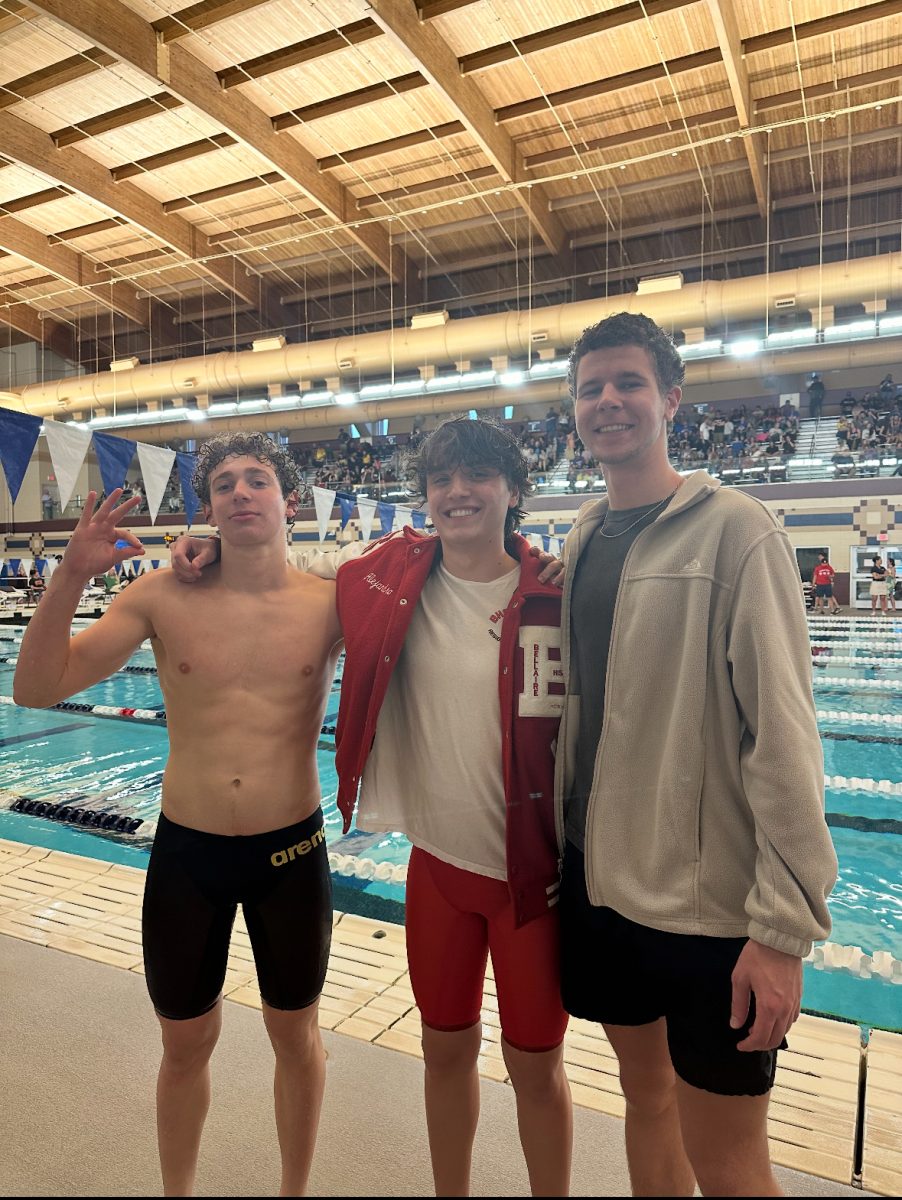
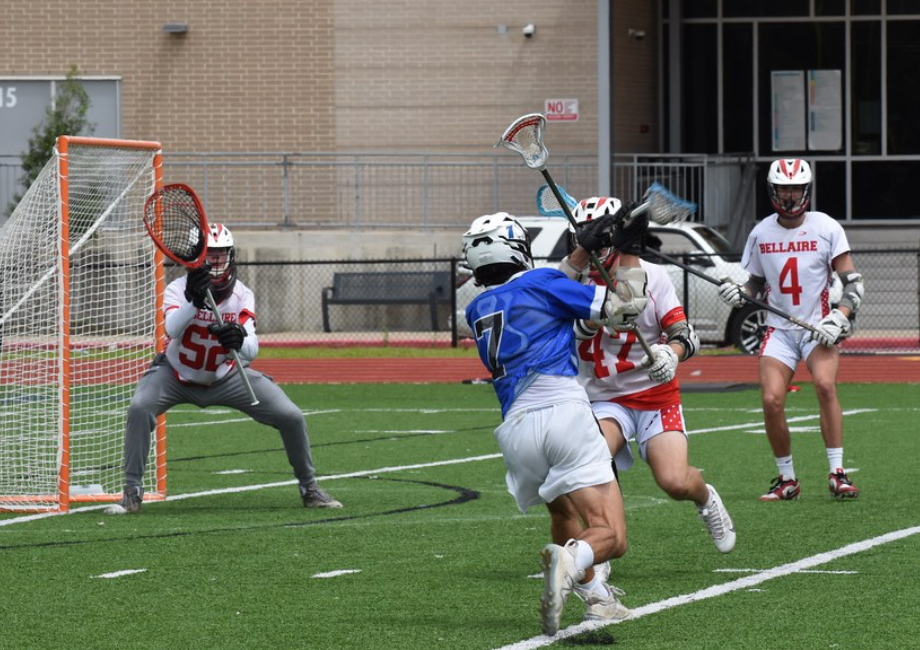
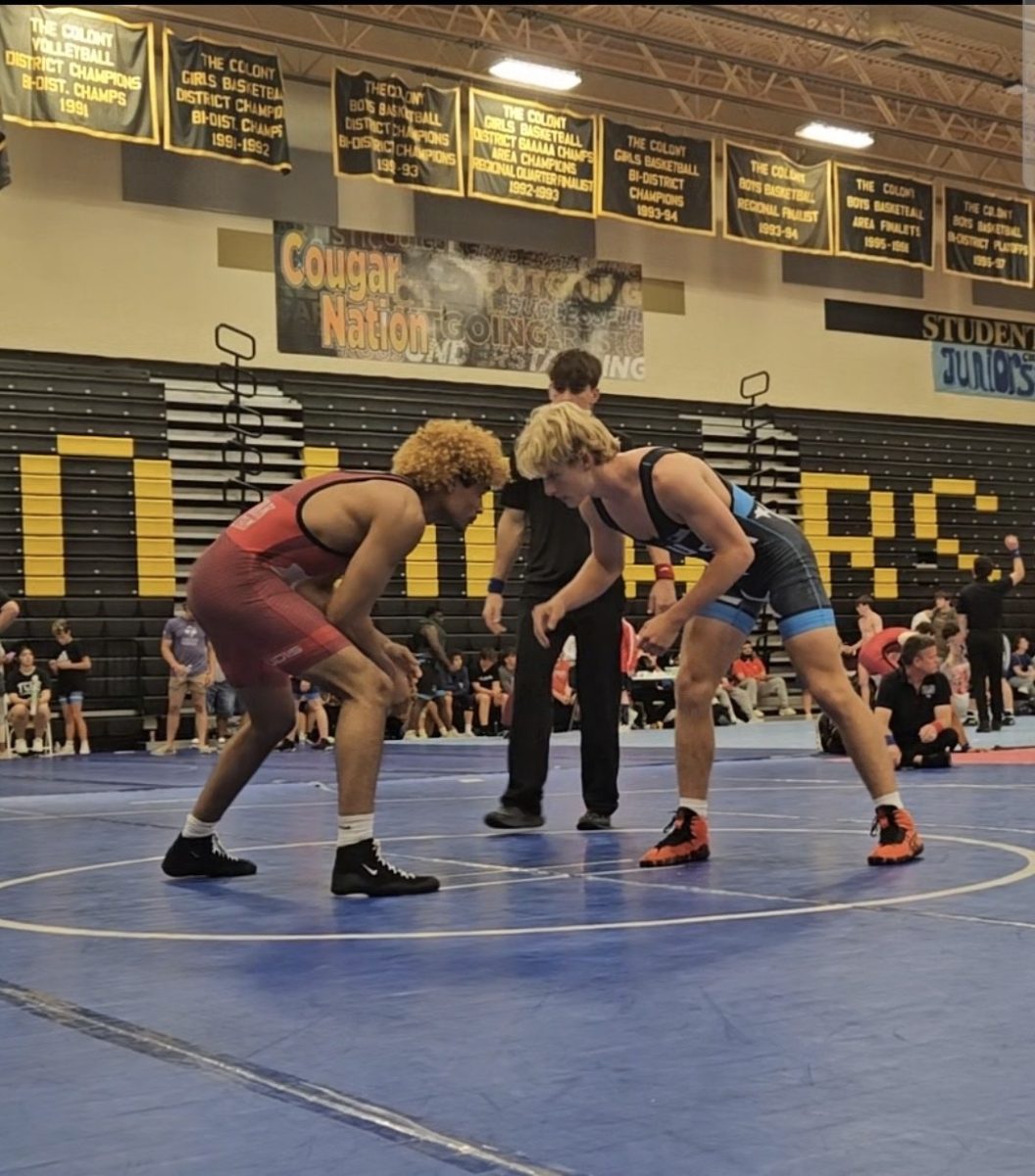
Claire B • Oct 3, 2024 at 9:19 pm
Love this story guys!! The quotes are so good! It’s so cool reading how breaking made it’s impact on a local level 🙂